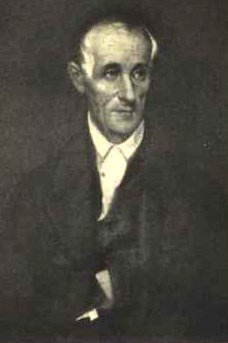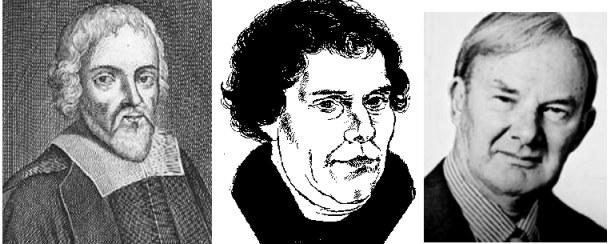Dealing with Apparent Contradictions: Part 12 – Rational Reinterpretation and theologians
Most theologians, even ones who focus on the Trinity, seem completely uninformed about important work in philosophical theology.
Most theologians, even ones who focus on the Trinity, seem completely uninformed about important work in philosophical theology.

Last time we highlighted one problem with Resolution through Rational Reinterpretation – often, only a metaphysician could love the new-fangled (but precise and seemingly consistent) version of the Doctrine in question. A second concern is that many believers think this “new version of” the Doctrine just ain’t that doctrine at all, but a knock-off – something similar, but different, and moreover, not genuine.
Consider these pronouncements of the First Vatican Council of 1869-70:
…that meaning of the sacred dogmas is ever to be maintained which has once been declared by holy mother church, and there must never be any abandonment of this sense under the pretext or in the name of a more profound understanding.Read More »Dealing with Apparent Contradictions: Part 9 – Rational Reinterpretation, cont.

What, if anything, is wrong with with the strategy of Resolution through Rational Reinterpretation? And why are most theologians so cold towards this strategy, while most Christian philosophers love it? Consider this quote by Moses Stuart on one of Leibniz’s takes on the Trinity:
The celebrated Leibniz was requested by a Loefler, who had undertaken to refute the writings of a certain English Antitrinitarian, to give him an affirmative definition of the persons in the Godhead. He sent for answer the following: – “Several persons in an absolute substance numerically the same, signify several, particular, intelligent substances essentially related.” On farther consideration, he abandoned this, and sent a second, which was, – “Several persons, in an absolute substance numerically the same, mean relative, incommunicable modes of subsisting.”
If Leibniz actually understood this, I believe he must have been a better master of metaphysics than any person who has ever read his definition.Read More »Dealing with Apparent Contradictions: Part 8 – Rational Reinterpretation, cont.
This brings the total of R’s to 6. Wish I could say there weren’t more coming! We’ve looked so far at two ways Christians may respond to apparently contradictory doctrines: Redirection and Restraint. We now move on to a third strategy: Resolution. In brief, the Resolver holds that the apparent contradiction can be banished, made to disappear. She doesn’t change the subject (as the Redirector),… Read More »Dealing with Apparent Contradictions: Part 7 – Resolution by Rational Reinterpretation

The more you think about hard stuff, the more opinions you get. I’ve taught philosophy of religion, modern philosophy, logic, and metaphysics courses, and so I have some fairly developed views. Based on theoretical (and non-theological considerations), here are some things I don’t believe in, because I think they’re impossible:Read More »Dealing with Apparent Contradictions: Part 11 – One last problem for Rational Reinterpretation

Many recent Christian philosophers have offered what I call Rational Reconstructions of apparently contradictory doctrines such as the Trinity and the Incarnation. Though I’m presently exploring criticisms of such views, let me emphasize that I don’t see anything wrong with what they’re doing, and I think that people with philosophical skills who are Christians ought to use them in any way which is helpful to the Christian community. At bare minimum, these folks are exploring possible views, possible ways to understand the Trinity (etc.). Getting clear about what the options are, and the costs and benefits of each, is an important kind of theoretical progress. Moreover, it shows intellectual integrity and courage, and concern for the truth.
At the end of my last post in the series, I noted that Rational Reconstructors often don’t believe their new version of the Doctrine. In any case, I’ve never seen one that insists that their version is the one which all Christians ought to believe. This latter isn’t surprising – we professors simply don’t have any authority to lay down a theory as required by any Christian community. But it is surprising that these folks are exercising some immense intellectual energy, and writing very involved and difficult pieces expounding views to which they do not commit? What is going on?
Short answer: apologetics. They’re deflecting bullets, as it were, with the theoretical equivalent of Wonder Woman’s super-duper bracelets.Read More »Dealing with Apparent Contradictions: Part 10 – Why Care About Rational Reinterpretation?

Unlike Redirectors, Revisers don’t change the subject. Unlike Resisters, they don’t claim we should just “live with the tension”. Unlike practitioners of Restraint, they don’t think we can put off the issue. Like Resolvers through Rational Reinterpretation, they have a solution. But they don’t think tricky, new, more careful formulations are what is called for. Rather, something must go out on the rubbish heap. Revisers are usually accused of arrogance, lack of respect for tradition, biblical ignorance, idolatry of human reason, not being Christians at all, and of hating babies and cute little puppies.
Open theists are RevisersRead More »Dealing with Apparent Contradictions: Part 20 – Resolution by Revision
James Goetz and Corby Amos on the inconsistent triad about Jesus dying.
Here. It’s an excellent, substantial discussion, posted in December 2014. If you don’t know who Dr. Rea is, he’s a leading Christian philosopher, specializing in metaphysics, and co-coiner of the useful term “analytic theology.” Here’s a rough guide to the interview, in case you want to skip around, or review after the fact, with a few sparse comments in italics. 1-12:20 Randal reads quotes about how difficult a… Read More »Dr. Randal Rauser interviews Dr. Michael C. Rea on the Trinity
Can metaphysics show how trinitarian theology is coherent?
 This post is sponsored by the letter “R”.
This post is sponsored by the letter “R”.
In my forthcoming “On Positive Mysterianism“, I first locate what I can “mysterianism” within a classification of various ways religious thinkers respond to apparently contradictory religious doctrines, i.e. ones which in their view they have some reason to believe.
In that paper I was discussing apparently contradictory beliefs about the Incarnation and Trinity doctrines, but it seems to me that this scheme is applicable to any religion.
The chart is just below. Read More »Need More Rs

Richard of St. Victor is well known for his argument that perfect love must be shared between three persons, and since God’s love is perfect, there must be three persons in God. Richard presents this argument in Book 3 of his De Trinitate, and that’s what we’ll be looking at in this series of posts.
I allow, indeed I declare, that the mystery of the Godhead surpasses rational apprehension; and it may be that in the end it will have to be represented by a contradiction. But it is essential that this should happen only when all our rational resources are at an end. It is ludicrous if we represent divine mysteries by avoidable contradictions, by muddles, which more disciplined… Read More »Christopher Stead on mysteries in theology
Now, to resume our drawn out and often-stalled series on Richard of St. Victor, in which we blog through th e entirety of book III of his De Trinitate (On the Trinity), in which he famously / notoriously argues for the Trinity from reason alone. These chapters, like many preceding ones, are too compressed, so I’ll try to unpack them for us.
e entirety of book III of his De Trinitate (On the Trinity), in which he famously / notoriously argues for the Trinity from reason alone. These chapters, like many preceding ones, are too compressed, so I’ll try to unpack them for us.
In chapter 23, Richard says that between the members of the Trinity “there seems to be more identity [sameness] than equality.” (p. 395) He then cites as an example three indistinguishable golden statues. Because they’re indistinguishable, we say they are “equal”. But there are three masses of gold involved, and so there are really three things here, three statues. But the case of the Trinity is different, he urges. How? Because “whatever is in any one person of the Trinity, the smae is also completely in any other person.” Here, he implies, we do have a deeper kind of “identity” or “sameness”.
I take it that Richard’s point is that the three Persons of the Trinity don’t differ as far as their composition, because each contains one and the same divine nature, here thought of as a particular.
He then brings up a case of “three rational spirits”, three souls. Read More »Richard of St. Victor’s De Trinitate, Ch. 23
Is it reasonable to believe in the reported miracles of early Christianity?
Roll up, folks.
We now move one the fourth R – what I call Mysterian Resistance (or Mysterianism). The Resistor is resisting the pressure to resolve the apparent contradiction, i.e. changing one of the apparently contradictory beliefs. Unlike the Redirector, the Resister doesn’t ignore the apparent inconsistency. And unlike the Resolver, he doesn’t think there’s a reasonable way to make the apparent contradiction go away. So the Resistor resists – he makes his stand – he comes up with a rationale for keeping his apparently contradictory beliefs.Read More »Dealing with Apparent Contradictions: Part 13 – Mysterian Resistance

Poetry, anyone?
Karen Armstrong is a famous ex-nun who has written, among other things, a puffing biography of the prophet Muhammad. She frequently appears on TV confidently gassing about various religious matters. But I was really taken a back by this, which I ran across in a podcast:
Ms. Armstrong: Well, you see, I think theology is poetry. That’s what my Jewish friend, Chaim Maccabee, told me all those years ago when he quoted Hillel’s golden rule to me and said, “You know, it doesn’t matter what you believe. Theology is poetry.”Read More »How not to do theology, Or: the theological Vogon (Dale)
If faith is not simply believing that some doctrine is true, what is it?
Equally divine or not? Dr. Craig on generation, procession, and the Logos theologians.
to this piece of mine, in the previous issue. Who gets the better of the exchange? I don’t have more to say right now… but I am reviewing Hasker’s major new book soon for another journal. In brief, he defends a three-self Trinity theory, and believes he can show this to be self-consistently monotheistic. He develops this view, I think, farther than anyone else ever… Read More »Bill Hasker’s reply